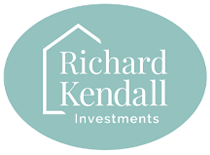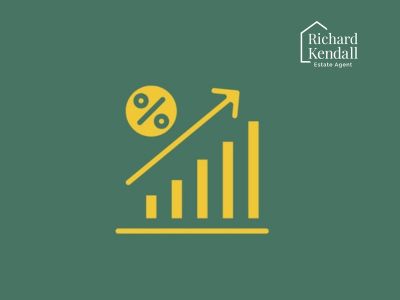Interest rates play a crucial role in the housing market, influencing affordability, mortgage costs, and overall demand for property. Whether rates rise or fall, homebuyers must understand how these changes impact borrowing power, monthly repayments, and long-term financial commitments.
1. How Interest Rates Affect Mortgage Costs
The most immediate effect of interest rate changes is on mortgage repayments. When interest rates rise, borrowing becomes more expensive, while lower rates make mortgages more affordable.
- Higher Interest Rates:
- Increase monthly mortgage repayments.
- Reduce borrowing capacity, as lenders assess affordability based on repayment levels.
- Can deter some buyers from entering the market.
- Lower Interest Rates:
- Reduce monthly repayments, making homeownership more accessible.
- Increase the amount buyers can borrow, potentially allowing them to purchase higher-value properties.
- Drive higher demand in the housing market, often leading to increased property prices.
2. Impact on First-Time Buyers
First-time buyers are particularly sensitive to interest rate changes. A higher rate can reduce affordability, requiring larger deposits or lower borrowing amounts. Conversely, lower rates create a more favourable environment, making it easier to step onto the property ladder.
- Rising Rates: May push some first-time buyers into renting longer or seeking lower-priced properties.
- Falling Rates: Encourage more first-time buyers to enter the market, increasing competition for homes.
3. The Effect on Homeowners and Remortgaging
For existing homeowners, interest rate changes affect those on variable-rate mortgages or those approaching a remortgage.
- Fixed-Rate Mortgages: Those on a fixed-rate deal are protected from immediate changes but may face higher rates when their term ends.
- Variable-Rate Mortgages: Monthly repayments fluctuate with interest rate movements, meaning homeowners could see costs rise unexpectedly.
- Remortgaging Considerations: When interest rates are low, homeowners may switch to a new deal to secure lower repayments.
4. House Prices and Market Demand
Interest rates influence property demand and house prices.
- When rates rise, borrowing becomes more expensive, often leading to reduced demand. This can slow house price growth or even cause declines in some areas.
- When rates fall, more buyers enter the market, increasing competition and driving prices higher.
5. Strategies for Homebuyers in a Changing Interest Rate Environment
To navigate fluctuating interest rates, homebuyers should:
- Compare mortgage deals – Fixed-rate mortgages provide security against future rate increases, while variable rates may be beneficial if rates fall.
- Use mortgage calculators – Estimate affordability based on different interest rate scenarios.
- Plan for potential rate changes – Consider whether current rates are sustainable for long-term financial stability.
- Save a larger deposit – A bigger deposit can unlock better mortgage rates and reduce monthly repayments.
Interest rate changes directly affect home affordability, mortgage repayments, and the overall housing market. Whether rates are rising or falling, buyers must assess their financial position, explore mortgage options, and plan for potential changes to ensure a stable and manageable home purchase.
Whatever your position in the housing market—whether you're a first-time buyer or a homeowner looking to remortgage—it may be worth getting in touch with us today to book an appointment and discuss your options. Richard Kendall Estate Agent works in partnership with SMH Finance LLP who would provide the mortgage advice. Speak to one of SMH Finance LLP specialists today and telephone 01924 291294.











